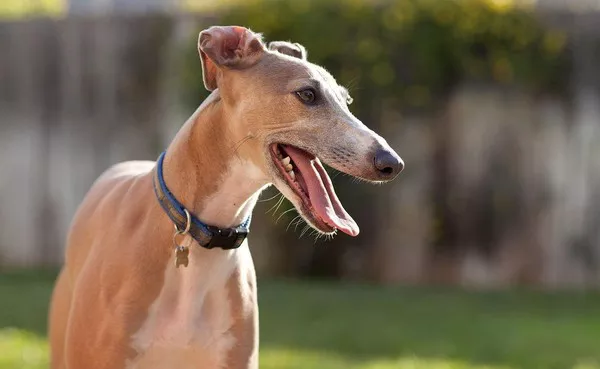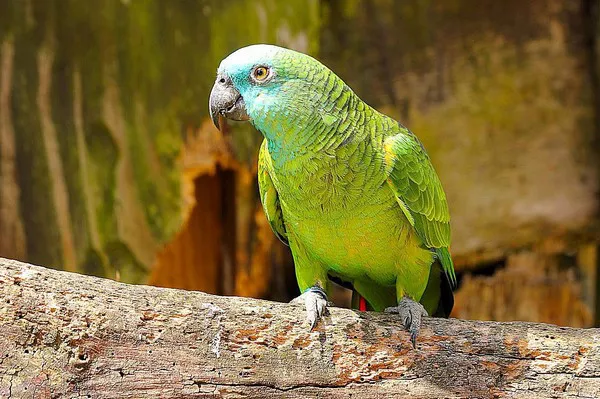American Foxhounds are a distinctive breed known for their athleticism, friendly nature, and hunting abilities. Bred primarily for hunting game, these dogs have a unique set of characteristics that make them both beloved companions and skilled working animals. However, like all breeds, they are prone to specific health issues. Understanding these potential health concerns is crucial for prospective owners and current caregivers to ensure the well-being of their furry friends.
American Foxhounds are medium to large-sized dogs that typically weigh between 45 to 65 pounds. They have a sleek, athletic build, with long legs, a broad head, and droopy ears that give them an elegant appearance. Their coats are short and come in various colors, including tri-color (black, white, and tan), red and white, and lemon and white.
Originally developed in the United States for hunting foxes, American Foxhounds are known for their keen sense of smell and endurance. They are social dogs that thrive in active environments, making them great companions for families who enjoy outdoor activities. While they have many positive traits, it’s important to be aware of the health issues that can affect this breed.
Common Health Issues
1. Hip Dysplasia
Hip dysplasia is one of the most common skeletal issues in American Foxhounds. It occurs when the hip joint does not fit properly into the hip socket. This malformation can lead to arthritis and pain, making it difficult for dogs to move freely.
Symptoms:
- Decreased activity or reluctance to run
- Difficulty rising from a lying position
- Stiffness, especially after exercise or resting
- Noticeable limping or lameness
Prevention and Management: While genetics play a significant role in hip dysplasia, maintaining a healthy weight and providing appropriate exercise can help reduce the risk. Regular veterinary check-ups and X-rays can aid in early detection. For affected dogs, pain management, physical therapy, and, in severe cases, surgical options may be recommended.
2. Ear Infections
American Foxhounds have long, floppy ears that can trap moisture and debris, making them susceptible to ear infections. These infections can be caused by bacteria, yeast, or parasites and can lead to discomfort if not treated promptly.
Symptoms:
- Scratching or rubbing at the ears
- Redness or swelling in the ear canal
- Foul odor emanating from the ears
- Discharge (wax or pus) from the ears
Prevention and Management: Regular ear cleaning can help prevent infections. Owners should check their dog’s ears weekly and clean them with a veterinarian-recommended solution. If an infection is suspected, prompt veterinary care is essential for diagnosis and treatment, often involving antibiotics or antifungal medications.
3. Obesity
Obesity is a growing concern among many dog breeds, including American Foxhounds. Due to their hunting background, these dogs require regular exercise to maintain a healthy weight. Overfeeding and lack of physical activity can lead to obesity, which in turn can cause various health issues.
Symptoms:
- Difficulty in performing normal activities (walking, running)
- Noticeable weight gain
- Decreased energy levels
- Excessive panting during mild activity
Prevention and Management: To prevent obesity, provide a balanced diet and ensure regular exercise, including walks and playtime. Owners should consult their veterinarian to determine the appropriate caloric intake based on the dog’s age, weight, and activity level. If a dog is already overweight, a weight loss program with a reduced-calorie diet and increased exercise is crucial.
4. Hypothyroidism
Hypothyroidism is a common endocrine disorder in dogs, including American Foxhounds. It occurs when the thyroid gland does not produce enough thyroid hormone, leading to a slow metabolism.
Symptoms:
- Weight gain without an increase in food intake
- Lethargy and reduced activity levels
- Thinning coat or skin problems
- Increased sensitivity to cold
Prevention and Management: Hypothyroidism is usually diagnosed through blood tests that measure thyroid hormone levels. Treatment typically involves daily medication to replace the missing hormone. Regular veterinary check-ups are important to monitor hormone levels and adjust medication as needed.
5. Allergies
American Foxhounds can be prone to various allergies, including food allergies, environmental allergies (such as pollen or dust mites), and flea allergies. Allergies can cause significant discomfort and lead to skin infections if not managed properly.
Symptoms:
- Itching or scratching
- Red, inflamed skin
- Ear infections
- Digestive issues (in the case of food allergies)
Prevention and Management: Identifying the source of the allergy is crucial. Allergy testing can help determine specific triggers. Managing allergies often involves changing the diet, reducing exposure to allergens, or using medications prescribed by a veterinarian, such as antihistamines or steroids.
6. Eye Problems
American Foxhounds are susceptible to various eye conditions, including cataracts and progressive retinal atrophy (PRA). These conditions can lead to vision impairment or blindness if not diagnosed and treated promptly.
Symptoms:
- Cloudy eyes (in the case of cataracts)
- Night blindness or difficulty seeing in low light
- Bumping into objects or hesitance in new environments
- Excessive tearing or discharge from the eyes
Prevention and Management: Regular eye examinations by a veterinarian can help detect potential issues early. For cataracts, surgical options may be available, while PRA currently has no cure but may be managed through a safe environment to minimize hazards.
7. Congenital Heart Disease
Some American Foxhounds may suffer from congenital heart disease, a condition present at birth that affects the heart’s structure and function. This can lead to heart failure and other complications if not monitored.
Symptoms:
- Coughing, especially after exertion
- Difficulty breathing or rapid breathing
- Lethargy and exercise intolerance
- Swelling in the abdomen or limbs
Prevention and Management: Early diagnosis through veterinary check-ups and imaging (like X-rays or echocardiograms) is essential. Treatment may involve medications to manage symptoms and improve heart function. Regular veterinary follow-ups are crucial for monitoring the condition.
8. Bloat (Gastric Dilatation-Volvulus)
Bloat is a serious condition that can affect deep-chested breeds, including American Foxhounds. It occurs when the stomach fills with gas and twists, leading to a life-threatening situation.
Symptoms:
- Distended abdomen
- Unsuccessful attempts to vomit
- Excessive drooling
- Signs of distress or pain (restlessness, pacing)
Prevention and Management: To reduce the risk of bloat, avoid feeding large meals or allowing vigorous exercise immediately after eating. If bloat is suspected, it is a medical emergency that requires immediate veterinary attention. Treatment may involve stabilizing the dog and performing surgery to untwist the stomach and prevent recurrence.
Regular Veterinary Care
To maintain the health of American Foxhounds, regular veterinary care is essential. This includes:
Routine Check-ups: Annual or bi-annual veterinary visits help catch potential health issues early.
Vaccinations: Keeping vaccinations up to date protects against various infectious diseases.
Parasite Prevention: Regular deworming and flea/tick prevention are crucial for overall health.
Dental Care: Regular dental cleanings can prevent dental disease, which can lead to more serious health issues.
Nutrition and Diet
A well-balanced diet is fundamental for the overall health of American Foxhounds. Here are some dietary considerations:
Quality Food: Choose high-quality commercial dog food that meets AAFCO standards. Look for food appropriate for the dog’s life stage (puppy, adult, senior).
Weight Management: Monitor food portions and adjust based on activity level to prevent obesity.
Fresh Water: Ensure your dog has access to clean, fresh water at all times.
Exercise Needs
American Foxhounds are active dogs that require regular exercise to stay healthy and happy. Here are some exercise tips:
Daily Walks: Aim for at least one hour of exercise daily, which can include walks, runs, or playtime.
Mental Stimulation: Engage their minds with training sessions, puzzle toys, and interactive games.
Socialization: Regularly expose them to other dogs and people to ensure they develop good social skills.
Grooming Needs
Grooming is an essential aspect of American Foxhound care:
Coat Maintenance: Their short coat requires minimal grooming, but regular brushing helps reduce shedding and keeps the coat healthy.
Ear Care: Regularly check and clean ears to prevent infections.
Nail Trimming: Keep nails trimmed to a comfortable length to prevent pain and injury.
Conclusion
Understanding the health issues that can affect American Foxhounds is vital for potential and current owners. By being aware of these conditions, you can take proactive steps to prevent them and ensure your dog leads a healthy, happy life. Regular veterinary care, a balanced diet, appropriate exercise, and diligent grooming are essential components of responsible pet ownership.
With proper attention to their health and well-being, American Foxhounds can thrive as beloved family members and loyal companions. Their friendly disposition and energetic nature make them a joy to have in any household, and by understanding their specific needs, you can provide them with the best possible care.
Related Topics:




















